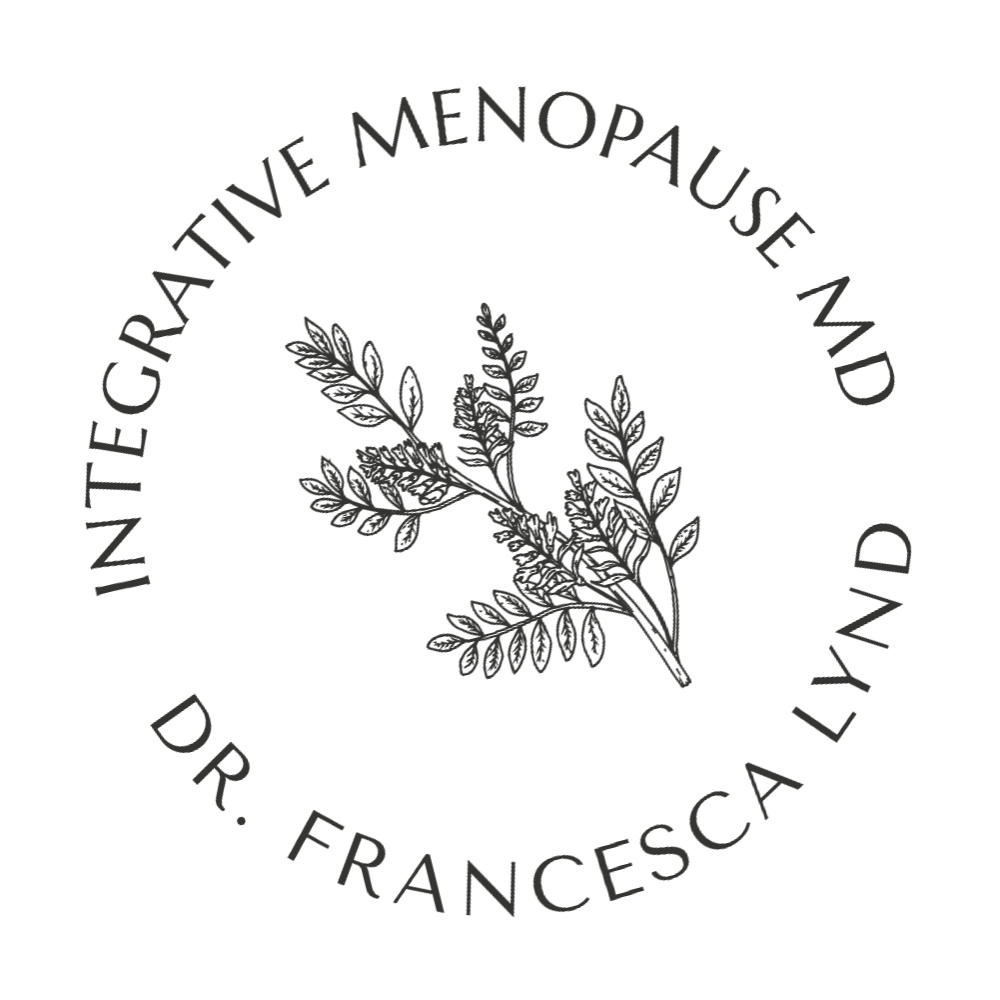Embracing Comfort: A Guide to Moisturizers, Lubricants, and Hormonal Solutions for Menopausal Vaginal Health
Oct 27, 2023
Vaginal dryness, a common experience for most women, often leads to discomfort and irritation, impacting not only intimate moments but also everyday life. Surprisingly, this widespread issue remains largely misunderstood. It's peculiar that such a prevalent concern is met with such a lack of awareness, considering its potential impact on the lives of countless individuals.
Well, let's fix this unfortunate knowledge gap.
The vaginal walls can become too dry for many reasons. Causes may include hormonal changes due to birth control, changes during the postpartum period, autoimmune conditions, and, yes, menopause. Genitourinary syndrome of menopause is the term doctors use to describe the changes so common in menopause. In fact, it is so common that it's the most frequently treated symptom in menopause. Previously, the genitourinary syndrome of menopause was simply referred to as “vaginal atrophy”. While the new term was intended to be more descriptive and emotionally palatable, I'm not so sure. :)
Genitourinary syndrome of menopause can cause minimal to excruciating symptoms. From a chafing feeling with exercise or walking, to pain with intercourse, itching, burning and increased urinary frequency. There is no need to suffer in silence.
First, have a gynecologist examine your vulva and vagina to rule out other infectious or dermatologic conditions that can be contributing. Have a discussion about vaginal estrogen when appropriate and always consider moisturizing.
When the vagina lacks moisture, the vaginal microbiome is altered which then contributes to an altered PH and irritative symptoms. Of course an altered microbiome can cause the dry irritated feeling as well, so it is best to take a holistic view and manage symptoms from multiple angles.
Let's discuss microbiome alteration first.
Inflammation and an altered immune response allows an unfavorable microbiome to take up residence in the vagina. This can lead to odor, and the diagnosis of bacterial vaginosis which is so common in the menopause transition. As vaginal estrogen plummets, the lactobacilli (healthy vaginal microbes) also plummet, which contributes to changes in the overall microbiome. Combining inflammation with a lack of estrogen results in unfavorable outcomes.
So before introducing any additional elements, reduce the inflammation. This is imperative. Stop the sugar and flour. Seriously, as much as possible, avoid added sugars and ultra processed foods which are so highly inflammatory. Drink plenty of water. As a baseline recommendation, wash your vulva with only water (a gentle unscented soft soap if you feel it necessary) to avoid introducing anything that might negatively alter the vaginal microbiome.Then keep things dry. Change out of swimsuits and exercise clothing as soon as possible. Less is more when it comes to the vulva and vagina. It's best to avoid tight clothing. Let it breathe….cotton granny underwear unless showing off!
That is your baseline care. So now moisturize.
Moisturizers
 In menopause, everything can become dry—hair, skin, mouth, eyes, nails and yes, your vulva and vagina. Similar to other areas of your body, you need to moisturize very regularly. As you moisturize your face, moisturize your vagina. But use a product designed for the delicate vaginal and vulvar tissues. Organic is best. No toxins, please. The product should have the appropriate pH. So important!
In menopause, everything can become dry—hair, skin, mouth, eyes, nails and yes, your vulva and vagina. Similar to other areas of your body, you need to moisturize very regularly. As you moisturize your face, moisturize your vagina. But use a product designed for the delicate vaginal and vulvar tissues. Organic is best. No toxins, please. The product should have the appropriate pH. So important!
So, has that improved things a bit? Is sex still feeling like sandpaper? No one enjoys chafing and irritation. When you tense up because you know “it's coming”, it is a buzz kill for your partner as well. And if this part of your relationship is going to continue, well now it is time to add on the lubricant.
Lubes
 There are so many on the market, there is truly something for everyone. Have fun trying different ones to find the best option. Do start with water-based lubricants which typically have minimal ingredients and are less likely to elicit a skin reaction. Water-based lubricants also wash off easily and don’t last as long.
There are so many on the market, there is truly something for everyone. Have fun trying different ones to find the best option. Do start with water-based lubricants which typically have minimal ingredients and are less likely to elicit a skin reaction. Water-based lubricants also wash off easily and don’t last as long.
Using condoms should still be the default practice, even after menopause, especially with new partners. Now is not the time to worry about his feelings, STDs (especially herpes) still happen even in menopause. So when using condoms, look for products that contain glycerin or aloe vera. A short ingredient list is best.
Avoid color, flavor, fragrance, parabens or any warming ingredients—especially if you have sensitive skin.
If things are more comfortable now but if you are seeking a longer-lasting option… Here is where the silicone-based options shine. Thicker and with more glide, you may want to apply to your partner and use the water based products vaginally. Again, the holistic approach from all angles…
But be aware of potential downsides of silicone as some people are allergic to silicone and silicone is more difficult to wash off. It tends to get goopy on sex toys too. Like the water-based lubricants, silicone-lubricants are safe with latex condoms. Remember though that Silicone is not considered natural and it is a synthetic ingredient.
Now, a word on oil based options:
Food grade organic coconut oil, organic olive oil or organic sweet almond oil are fine moisturizers for many women but can get messy. The coconut oil is solid at room temperature and many couples prefer this option. But often, it is not sufficient for many women as a lubricant nor moisturizer. A moisturizer with hyaluronic acid to use daily or every other day, organic food grade coconut oil on days of activity and lubricants as needed. Individualized and holistic…
You should never use petroleum jelly or baby oil. Bad for condoms and really bad for the vagina. It can raise your risk of vaginal infections.
For menopausal women with dryness, all too often, moisturizing and lubricants may not suffice. If this is the case, seriously consider vaginal hormone therapy. There are 2 hormones used vaginally to consider.
Hormonal options
Vaginal estradiol
Cream-based estradiol, vaginal estradiol tablets or estradiol vaginal rings are all highly effective. When used vaginally, the estradiol stays locally in the vaginal tissues. Side effects are extraordinarily low and safe for most women after menopause. Estradiol is commonly used twice weekly and the tablets are not messy. Most women will use the tablets 1-3 times weekly, moisturize almost daily and an occasional water based lubricant...All good.
DHEA
Vaginal DHEA ,or prasterone, is a cream inserted vaginally on a daily basis. Many women find this excessive, but the main negative side effect is vaginal discharge. In addition to the vagina, there are also androgen receptors on the vulva (labia, clitoris and vestibule). Some women find improvement in arousal when using DHEA vaginally (and at the vaginal opening). So that is something to consider.
Menopausal women often face the challenge of vaginal dryness, a common yet frequently undiscussed symptom that can affect overall well-being and intimate relationships. Genitourinary Syndrome of Menopause (GSM) is so common and so easily controlled with a few practical tips on managing discomfort. By addressing inflammation, moisturizing effectively, and exploring a variety of lubricants, women can regain control over their intimate lives. Additionally, we've delved into hormonal options, providing valuable insights into the safe and suitable use of products like vaginal estradiol and DHEA. Remember, every woman's body is unique, so finding the right solution might require some exploration. With the right knowledge and approach, menopausal women can find comfort, confidence, and intimacy, ensuring that this natural phase of life doesn't hinder their overall quality of life or intimate relationships. Embrace your well-being and celebrate the power of informed choices in your personalized journey.
Wellness always,
Integrative Menopause MD
This blog is intended for educational and entertainment purposes only. Please consult your own health care provider before acting on any information or advice in my blog or on my website. Remember, healthcare and wellness are unique to your personal history and needs.





